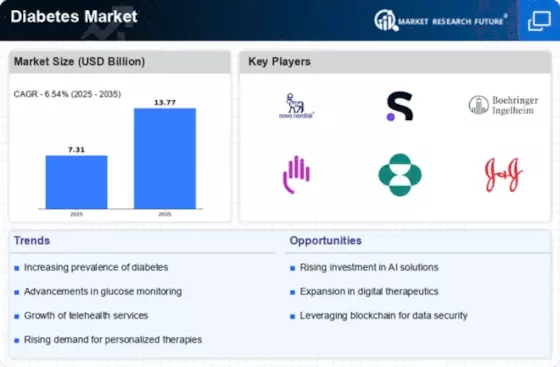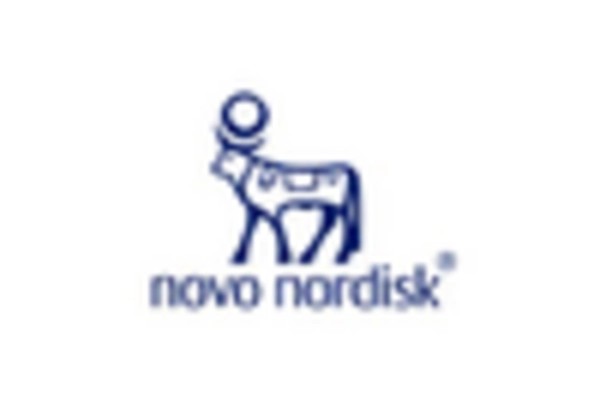Market Trends
Key Emerging Trends in the Diabetes Market
More and more people in India are getting diabetes, which is changing the market direction in that area. A larger number of people don't exercise, eat poorly, and have diabetes-prone DNA. This explains the rise in diabetes cases. Now, there is a huge market for things and services related to diabetes because of this. There is good news for the diabetes market in India: more people are learning about it and how important it is to found early. There has been a clear change toward stricter health management thanks to the work of drug companies, healthcare organizations, and government programs. And because of this, more people are being told they have diabetes earlier. There are big changes happening in the market for devices that check glucose levels. These devices are becoming more high-tech. Continuous glucose monitoring (CGM) and smart insulin pens simplify diabetes treatment. This is because they give patients more accurate data that is updated in real time. A lot of people are using this way because it fits with the trend around the world toward personalized and digital health care. New medicines are being made all the time to treat and prevent diabetes. This is a trend in the drug business. There are now more medicines on the market than ever before. These medicines work in more ways and are better at what they do. This new idea is a big step forward because it will make treatments work better and give patients and doctors more choices. A big trend in the Indian market right now is diabetes drugs that don't cost a lot of money. People who are afraid about how much it will cost to treat diabetes can get help from the government and from drug makers and healthcare groups working together. Getting these important diabetes drugs cheaper so that more people can get them is the main goal. The COVID-19 spread has made some people notice that telemedicine and online patient tracking are being used more often. With these tools, you can always keep an eye on your patients and check in on them often. This could make taking care of diabetes easy and better. This is very helpful for people who live in the country or a long way away. More and more, tech companies, healthcare services, and drug companies are likely to connect with each other and work together. The goal of these deals is to make better diabetic care by combining medical knowledge, new technology, and market reach to give people all the help they need. Indian government is trying hard to stop the spread of diabetes. This is clear from the many rules and programs it has set up. This includes efforts to teach people about diabetes, health care programs paid for by the government, and rules that make sure things and services connected to diabetes are of good quality and not too expensive. These things have a big impact on how market trends change over time. AI is being employed in diabetes care, specifically predictive analytics to detect diabetes early and provide personalized treatment programs. AI is being applied in healthcare, revolutionizing diabetic treatment. AI makes healthcare more personalized and effective for everyone.



















Leave a Comment